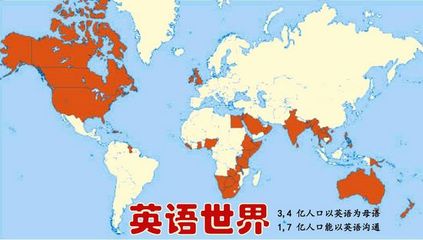21世纪英语的演讲稿你知道吗?下面都是小编收藏的21世纪英语的演讲稿,希望对你们有用。
21世纪英语的演讲稿如下:21世纪英语的演讲稿1The Impact of Globalization on Traditional Chinese Values
Good morning, ladies and gentlemen:
Before western and Chinese civilization came into close contact, Chinese people had always longed for a life depicted in traditional Chinese paintings. Those paintings present a harmonious coexistence of people and other life forms. Regarded as the essence of ancient Chinese philosophies, harmony has been deeply-rooted in the minds of the Chinese people. On the one hand, it has contributed to the unique continuity of Chinese civilization. On the other, Chinese people became too much contented with their achievements to desire any further changes. As globalization deepens, it is bound to affect our ideal of harmony.
First, globalization urges China to speed up its modernization, which threatens our regard for the harmony between Man and Nature. For instance, many dams and hydropower stations are being built for economic benefits at the expense of the well-preserved natural habitats. However, ecological malpractice of such kind goes against the notion of harmonious coexistence in ancient Chinese philosophies. More than 2,000 years ago, long before the concept of environmental protection came into being, DuJiang Weir, a great irrigation project was built in southwestern China's Sichuan province. It succeeded both in controlling floods and in facilitating the agriculture without posing a threat to the environment.

Moreover, globalization has brought with it intense competition. Traditionally, moderation is a golden principle, presiding over inter-personal relations in China. Today, however, motivated to come to the top, some people become so self-centered that they choose to sacrifice love, friendship and even family ties.
Last but not least, diverse cultures have met in China as a consequence of globalization. Therefore, a clash of cultures becomes inevitable. Unfortunately, the past decades have witnessed a huge loss of cultural heritage in China. In cities like Beijing and Xi'an, hundreds of century-old Chinese-style houses are being demolished to make room for skyscrapers, shopping malls and eight-lane expressways.
From these examples, we see the disharmony brought about by globalization. Yet it is not globalization that is to blame. As long as we approach globalization with harmony in mind, its benefit will outweigh its cost. Take my hometown, Hangzhou, for example, thanks to the strenuous efforts made by the municipal government in achieving eco-development, various water birds have returned to the West Lake, calling it home again after years of migration elsewhere. From the lake bank, we see skateboarders and trick cyclists showing off together with people flying kites and kicking shuttlecocks on the plaza nearby. Although they compose a picture quite distinct from traditional Chinese paintings, this picture conveys a modern sense of harmony in this era of globalization.
Ladies and gentlemen, to conclude, I would like to quote from British philosopher Bertrand Russell. In contrasting Chinese and Western civilizations, he observed: "The distinctive merit of western civilization is the scientific method; the distinctive merit of the Chinese is a just conception of the ends of life. It is these two that one must hope to see gradually uniting." As we see the tremendous progress China has been making drawing on experience abroad, we may also expect the Chinese traditional value of harmony to enrich the world. I look forward to the time when Russell's prophecy comes true.
Thank you very much.
21世纪英语的演讲稿2From Walls to Bridges
I'm studying in a city famous for its walls. All visitors to my city are amazed by the imposing sight of the city walls, silhouetted by the setting sun with gold and shining lines. With old, cracked bricks patched with lichen, the walls are weather-beaten guards, standing still for centuries in protecting the city.
Our ancestors liked to build walls. They built walls in Beijing, Xi'an, Nanjing and many other cities, and they built the Great Wall, which snakes through half of our country. They built walls to ward off enemies and evil spirits. This tradition has been maintained to this day as we still have many parks and schools walled off from the public. I grew up at the foot of the city walls, and I've loved them since my childhood. For a long time, walls were one of the most natural things in the world.
My perception, however, changed after a hiking trip to the Eastern Suburbs, a scenic area of my city. My classmates and I were walking with some international students. As we walked out of the city, we found ourselves flanked by taller and taller trees, which formed a huge canopy above our heads. Suddenly an international student asked me, "Where is the entrance to the Eastern Suburbs?"
"We're already in the Eastern Suburbs," I replied.
He seemed taken aback, "I thought you Chinese have walls for everything." His remark set off a heated debate. At one point, he likened our walled cities to "jails," while I insisted that the Eastern Suburbs were one of the many places in China that had no walls.
That debate had no winners, but I did learn a lot from this international student. For instance, he told me that universities like Oxford and Cambridge were not surrounded by walls; the campuses were just part of the cities. I have to admit that we do have many walls in China, and as we are developing our country, we must carefully examine them, whether they are physical or intangible. We will keep some walls but tear down those that impede China's development.
Let me give you an example.
A year ago, when I was working on a term paper, I needed a book on business law and found a copy in the law school library. However, the librarian turned down my request with a cold shoulder, saying, "You can't borrow this book, you are not a student here." In the end, I had to spend 200 yuan buying a copy; meanwhile, the copy in law school was gathering dust on the shelf.
At the beginning of this semester, I heard that my university has started not only to unify its libraries but also link them up with libraries of other universities, so my experience will not be repeated. Barriers will be replaced by bridges. Through an inter-library loan system, we will have access to books from any library. With globalization, with China integrated into the world, I believe many of these intangible walls will be knocked down.
I know globalization is a controversial issue, and it is hard to say whether it is good or bad. But one thing is for sure: it draws our attention to China's tangible and intangible walls and forces us to examine their roles in the modern world.
And how about the ancient walls in my city and other cities? Should we tear them down? Just the opposite. My city, like Beijing and other cities, is actually making a great effort to preserve the walls. These walls attract not only historians and archeologists but also many schoolchildren trying to study our history and cultural heritage. Walls have turned into bridges to our past and to the rest of the world. If the ancient builders of these walls were still alive today, they would be proud to see such great change in the role of their walls. They are now bridges that link East and West, South and North, and all countries of the world. Our cultural heritage will survive
 爱华网
爱华网



